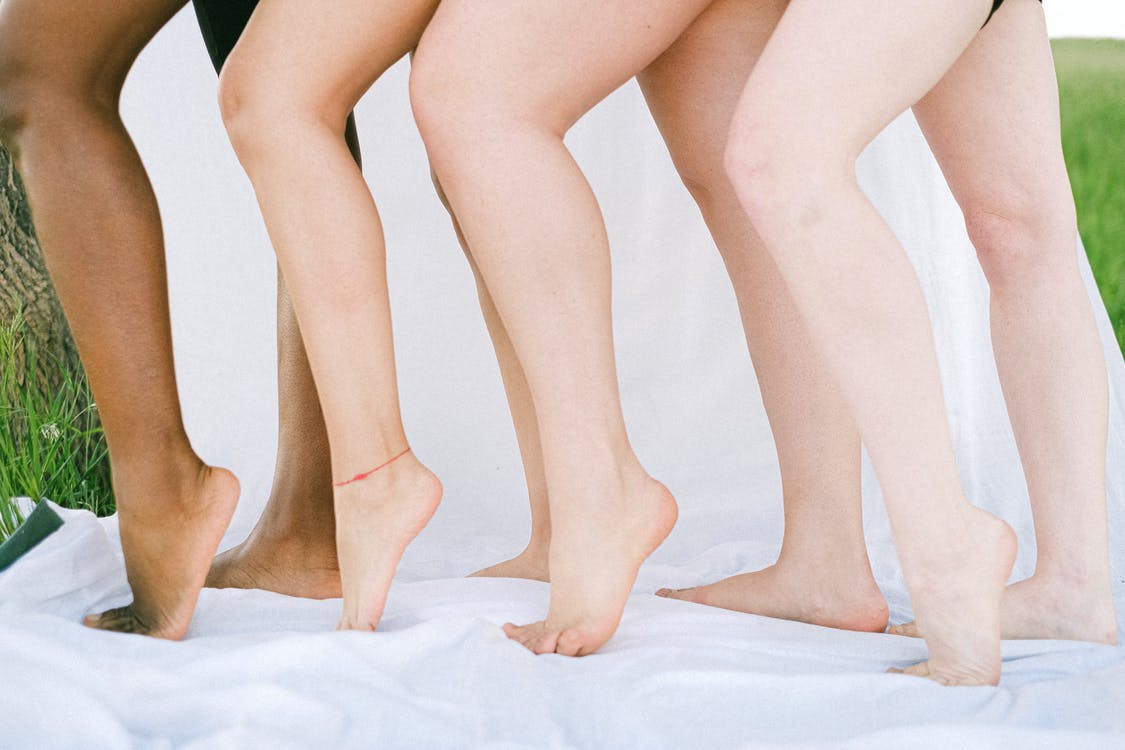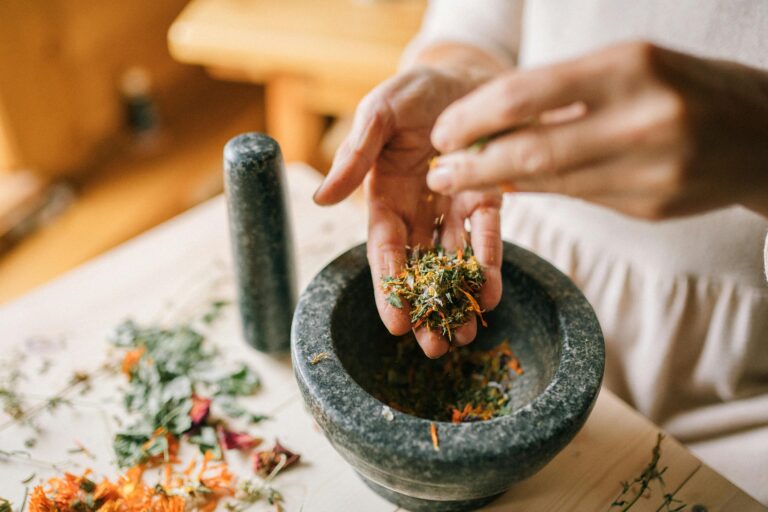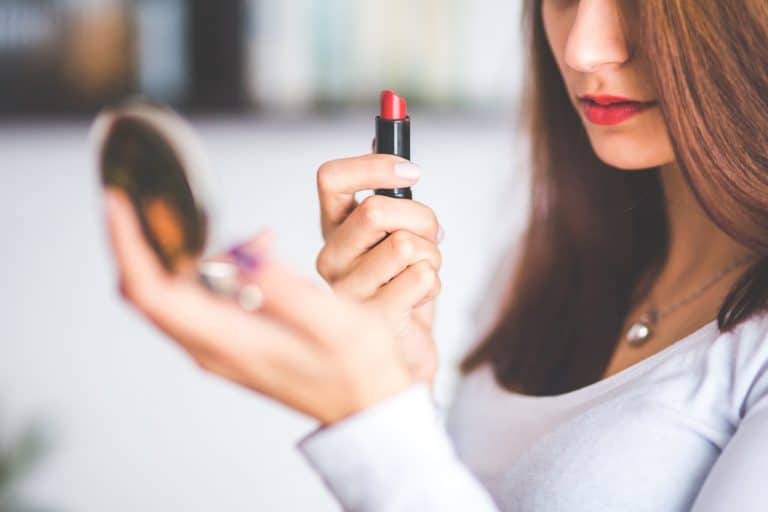Body positivity refers to the assertion that all people deserve to have a positive body image, regardless of society’s ideal shape, size, and appearance. The body positivity movement challenges existing social standards of what preferred body is, promotes the acceptance of all types of bodies, helps people build confidence and acceptance of their own bodies and address unrealistic body standards. While the West has already tackled the subject of body positivity, Asian countries are still coming around to acknowledging the need for body positivity. It is touched upon in articles from time to time, but for most of Asia, embracing themselves is easier said than done. However, more brands are embracing body positivity in China to better reach consumers, marking a significant change in marketing to women.
Over history, the Chinese have favored a broad range of women’s figures. Such as during the Tang Dynasty, larger figures were not frowned upon and seen as signs of affluence and power. Contemporary Chinese culture, however, has settled their perceptions of beauty. The competition for finding jobs and life partners is strong, and there is an enormous amount of pressure placed on Asian women about living up to the beauty standards which included slimmer bodies and features such as smaller face shape, fair skin, bigger eyes, and smaller noses. They look to their idols in South Korea and the West for inspiration and do not shy away from cosmetic enhancements and plastic surgery.
On Gen-Z-focused social media platforms, there has been a demand for diversifying the sizing for female clothing. On Weibo, the hashtag “how women should overcome body anxiety” has also received almost 70 million views. There is a segment of females seeking fashion and beauty advice. On Xiaohongshu, some hot search terms related to styling tips for plus-sized fashion are used. These trends reflect vital opportunities in this segment, which brands should take advantage of if they are targeting plus sized women in China.
Examples of brands promoting body positivity in China
Dove, the soap brand, led the charge a decade ago with a series of advertisements featuring beautiful, natural, and cheery overweight women in their underwear without Photoshop. Since 2004 with the “Real Beauty” campaign, Dove hasn’t stopped trying to promote natural figures that are complicated to attract attention and traffic flow, with the current social area full of beauty filters and KOLs, especially in China.
Victoria’s Secret, following years of declining sales in China and a controversial show in 2016, has announced a new trio of ambassadors composing of an idol, a fashion photographer, and a former celebrity agent and body diversity champion. Victoria’s Secret’s global image of glamorous and perfect supermodel looked out of touch with the changing society. By working with diverse women, they are trying to change their negative image, while some consider this as a positive move, others consider that’s just a selling strategy based on inclusivity.
Chinese lingerie brand NEIWAI released a social media campaign, No Body is Nobody, ahead of International Women’s Day in 2020. A 14-minute documentary featured six women representing familiar negative female stereotypes. The campaign has been well-received by young female consumers. The video quickly gained 262,000 views on Weibo within the first 48 hours of the release.
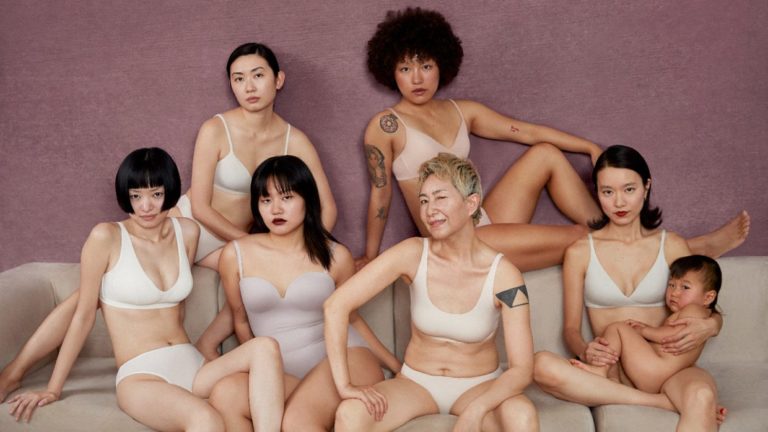
On March 1st, 2021, Neiwai revisited the project featuring a new cast of women. Once again, it went viral, the campaign hashtag #NoBodyIsNobody has received over 7.48 million views, and the teaser video has gained 61,600 views on Weibo within one day. Unlike other brands that collaborate with celebrities or fashion/entertainment KOLs, Neiwai features day-to-day women in its campaign, making the brand more relatable to broader consumers.
Forces against body positivity in China
Mainstream media often pushes unrealistic ideals for Chinese women. For example, a niche brand, Brandy Melville (BM), has gone viral among Chinese gen-Z women for their “one-size-fits-all” extra small pieces, fitting into the clothing is shown as a badge of honor for some netizens. Chinese Gen Zers are divided on the topic. One side upholds this aesthetic as the ultimate fashion statement, while the other condemns the BM standard as “body shaming.” Understanding this newer generation can help brands that wish to attract the younger, especially when brands need to carefully balance culturally specific beauty standards with changing social values.
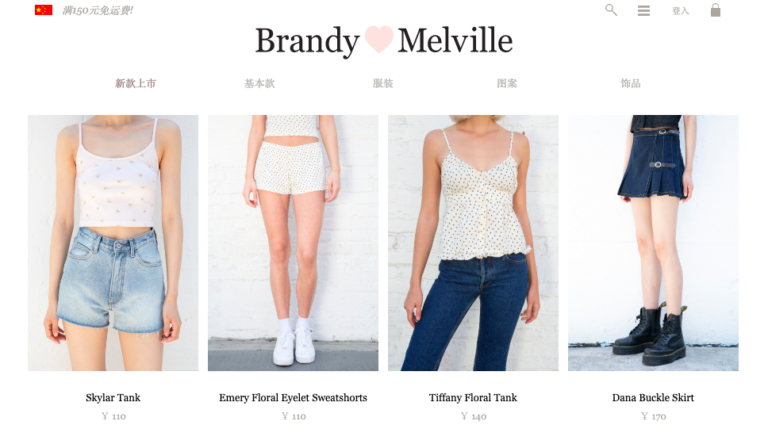
A 2019 Ipsos online survey on global beauty standards found that out of 27 countries, China came out top in believing that body weight and shape are important attributes in making a woman beautiful. Chinese were also the second most likely to pick the skinniest body types as “ideal” for women.
As a result of these beauty standards, a lot of challenges went viral such as comparing waist size to an A4 piece of paper, or seeing how many coins can balance on the collarbone. Going to great lengths like this to show off a thin figure has been a common social media practice for some young women. Another one of these ‘skinny challenges’ was the “adults wearing Uniqlo children’s clothes” On Weibo alone, the hashtag has received over 680 million views and on Xiaohongshu.
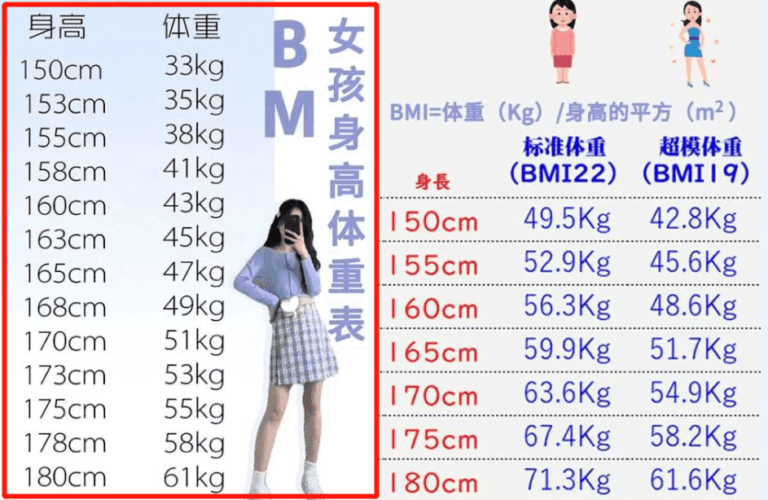
What brands should know about body positivity in China
- Many people still hold narrow beauty standards for women. Body positivity is an uphill battle, but, that means brands that embrace it are going against the trend and are likely to be remembered. It is also generally culturally acceptable to be direct when talking about someone’s weight. The majority of Chinese people will openly call loved ones or peers fat, not with the intention of shaming, but with the intention of showing concern for health. However, as a result it further enforces certain beauty standards.
- It looks like things are changing for the better, and more women in China are exercising by going to gyms and fitness clubs with the goal of a toned, healthy physique rather than a skinny ideal.
- Along with new criticisms around trends that increase body negativity, such as “Brandy Melville girls” there is more female awakening in China, not just only about women’s bodies, but also their identities.
Learn something new? Stay updated on the Chinese market by following our WeChat, scan the QR code below, or subscribe to our newsletter

Learn more about China’s health ideals from our survey on health perceptions
Listen to over 100 China entrepreneur stories on China Paradigms, the China business podcast
Listen to China Paradigm on Apple Podcast



